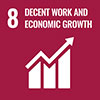Telework in evolution: a narrative approach
The purpose of this article is to provide some basic information on telework and to develop, in parallel, some reflections on this economic reality and the role of its legal regulation.
For some years, we have been observing a process of transformation of the nuclear bases on which we have built our labour relations. It is the result of digitalization, which challenges the logic of physical concentration and detaches activity from a single, static location. In other words, telework comes as standard with digitalization. However, it is only when its advancement became so abrupt and far-reaching that we noticed the shift and can already sense a break from the traditional work model.
This article explores the evolutionary progress of telework, beginning with two circumstances that were its main driving factors – digitalization and the COVID-19 pandemic –; observing it from a double dimension, namely organizational and regulatory, and summarizing the main changes in the narrative on telework, in order to contribute to the reflection on the work of the future society.
ODS


 Mar Sabadell i Bosch
Mar Sabadell i BoschDegree in Law from the University of Barcelona (UB, 1987) and member of the Barcelona Bar Association. Master in Society of information and knowledge and Doctorate from the same university.
Professor of Economics and Business Studies at the Universitat Oberta de Catalunya since 1999, in subjects relating to corporate tax, labour law and the prevention of work-related risk. From 2006 to 2008, she was assistant to the vice rector of Academic and Professorship Planning (2006-2008) and, later, to the vice-rector of Professorship and University Policy (2009).
Within the consolidated research group DigiBiz, Digital Business Research Group (2017-SGR-368), of which she is a member, she has participated in research projects funded by Spanish and European agencies. Her interests are channelled towards the analysis of transformations experienced by work as a result of the digitalization process of society and the economy, particularly remote working and its organizational implications in work-related Health and Safety. Her R&D&i activity is also focused on the development of online learning environments for professional practice and the accreditation of skills, having obtained the Jaume Vicens Vives distinction (2017) from the Generalitat de Catalunya, in a teaching capacity.



